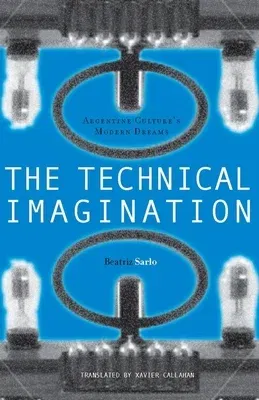Beatriz Sarlo
(Author)The Technical Imagination: Argentine Culture's Modern DreamsHardcover, 13 December 2007

Qty
1
Turbo
Ships in 2 - 3 days
In Stock
Free Delivery
Cash on Delivery
15 Days
Free Returns
Secure Checkout

Part of Series
Writing Science
Part of Series
Writing Science (Hardcover)
Print Length
208 pages
Language
English
Publisher
Stanford University Press
Date Published
13 Dec 2007
ISBN-10
0804735425
ISBN-13
9780804735421
Description
Product Details
Author:
Book Format:
Hardcover
Country of Origin:
US
Date Published:
13 December 2007
Dimensions:
21.79 x
15.04 x
2.29 cm
ISBN-10:
0804735425
ISBN-13:
9780804735421
Language:
English
Location:
Stanford, CA
Pages:
208
Publisher:
Weight:
381.02 gm